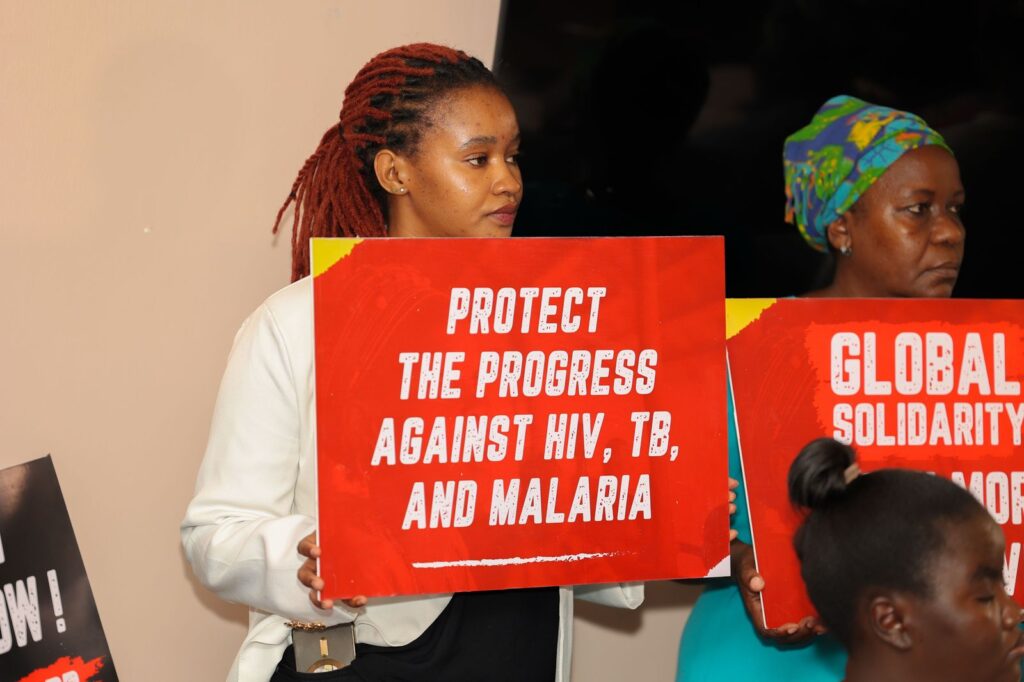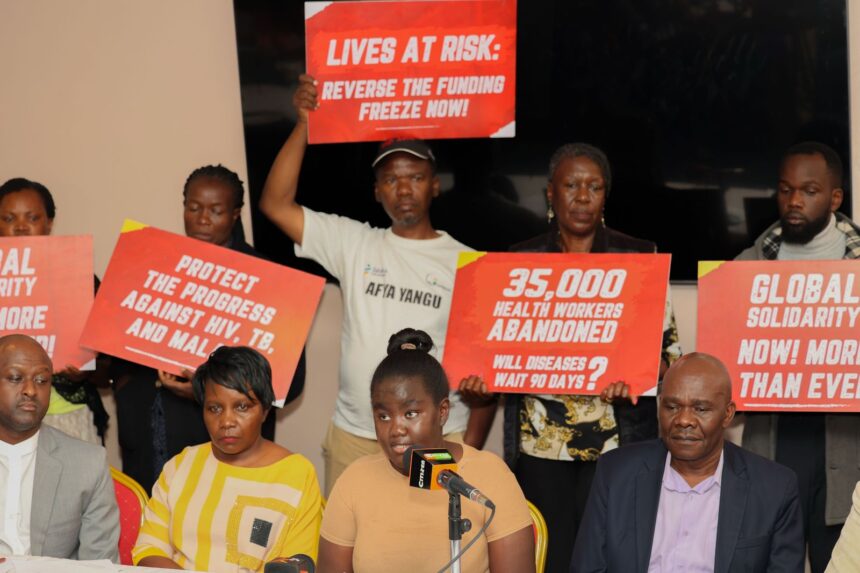By Sharon Atieno | sharonphoebeatieno@gmail.com
Civil society organisations (CSOs) and communities working in Kenya’s health sector have urged the US Government to reverse the “Stop-Work Order’ and instead adhere to basic global health governance principles, which build on cooperation, equality, and inclusivity.
This follows a 90-day suspension of US foreign aid, initiated by President Donald Trump on January 20, 2025.
According to the groups, the suspension has critical implications, including reversal of healthcare gains made over the years, particularly in HIV, TB and malaria.
“More than 150 clinics have been forced to close, affecting more than 72,000 people who rely on anti-retroviral therapy. Drop-in centres for key populations, including LGBTQ+ individuals, sex workers and people who use drugs, have shut down, along with HIV prevention services for adolescent girls and young women,” they said in a statement.
Other than that, the groups advocated for consideration of the workers in the affected sectors: “Approximately 35,000 healthcare workers, including doctors, nurses, community health workers, and outreach personnel, have been placed on unpaid leave, leaving millions of Kenyans vulnerable to new infections and untreated illnesses.”
Further, the groups lamented over confusion and challenges in operationalising the waiver. They said that even though the US Secretary of State insisted that a waiver would allow funding for critical services, providers report confusion and challenges in accessing resources, forcing HIV treatment centres to close and disrupt critical programmes.
Besides the US Government, the CSOs and communities working in the health sector have called on the national and county governments to treat the current crisis as an emergency.

“Proactive urgent action should be taken to respond and mitigate the impact of the suspension. The country should not wait for lives to be lost before responding. We call for an urgent development of a mitigation plan, in consultation with stakeholders; and for urgent actions to be taken through ambitious budget allocations through a supplementary budget for the Financial Year 2024/2025. We also call for increased budget allocation in the Financial Year 2025 /2026,” they note.
Additionally, both levels of government should operationalise existing frameworks and mechanisms for transition and long term sustainability.
According to the groups, the national government, particularly, should “conduct rapid response initiatives to ensure all the missed health services and appointments have been provided to avert the possible foreseeable impact of the Stop-Work order. This should be conducted transparently and information proactively shared with the public on measures being taken to mitigate the impact.”
They asked the Kenyan government to institute solid plans to ensure health is a priority in at national government and devolved units, with adequate and sustainable resource allocation, while calling on them to ensure there is adequate infrastructure for pandemic preparedness.
Kenya’s health sector is largely donor dependent, with the US being the biggest donor. Between 2001 and 2024, it is estimated that Kenya received over Shs 1.26 trillion in US health aid. – MESHA Science Features 2025








